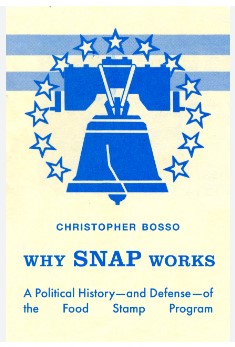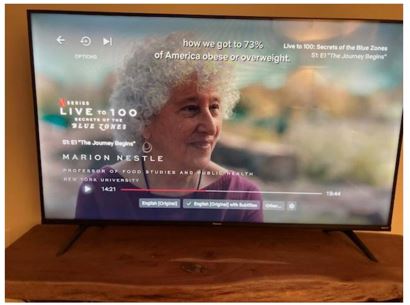Thanks to Arjan van Groningen for this one.
The study: The Effect of Non-Nutritive Sweetened Beverages on Postprandial Glycemic and Endocrine Responses: A Systematic Review and Network Meta-analysis. Zhang, R.; Noronha, J.C.; Khan, T.A.; McGlynn, N.; Back, S.; Grant, S.M.; Kendall, C.W.C.; Sievenpiper, J.L. Nutrients 2023, 15, 1050. https://doi.org/10.3390/nu15041050.
Conclusions: The available evidence suggests that NNS beverages sweetened with single or blends of NNS have no acute metabolic and endocrine effects, similar to water. These findings provide support for NNS beverages as an alternative replacement strategy for SSBs in the acute postprandial setting.
Funding: This work was supported by an unrestricted grant from the Institute for the Advancement of Food and Nutrition Sciences (IAFNS). The grant was awarded through a competitive request for the proposal process. The sponsor was not involved in the development of the study protocol and design, execution, analyses, interpretation of the data, or decision to publish. The protocol and results were presented to the Low- And No-Calorie Sweeteners Scientific Committee of IAFNS on several occasions with an opportunity for scientific dialogue.
Comment: IAFNS is the new name for ILSI North America, a classic industry front group. To its credit, the authors disclose the involvement of IAFNS in this review. Check out the Conflict-of-Interest declarations from this group; they are legendary.
Conflicts of Interest: J.C.N. has worked as a clinical research coordinator at INQUIS Clinical Research. He has also received research support from Glycemia Consulting Inc. T.A.K. has received research support from the Canadian Institutes of Health Research (CIHR), the International Life Science Institute (ILSI), and the National Honey Board. He has taken honorariums for lectures from the International Food Information Council (IFIC) and the Institute for the Advancement of Food and Nutrition Sciences (IAFNS; formerly ILSI North America). He is funded by the National Honey Board. N.M., was a former employee of Loblaw Companies Limited, and is a current employee of Enhanced Medical Nutrition. She has completed consulting work for contract research organizations, restaurants, start-ups, the International Food Information Council, and the American Beverage Association, all of which occurred outside of the submitted work. S.M.G. has received honoraria from Dietitians of Canada and Diabetes Canada for the development and delivery of educational resources on the glycemic index in the past five years. C.W.C.K has received grants or research support from the Advanced Food Materials Network, Agriculture and Agri-Foods Canada (AAFC), the Almond Board of California, Barilla, the Canadian Institutes of Health Research (CIHR), the Canola Council of Canada, the International Nut and Dried Fruit Council, the International Tree Nut Council Research and Education Foundation, Loblaw Brands Ltd., the Peanut Institute, Pulse Canada, and Unilever. He has received in-kind research support from the Almond Board of California, Barilla, the CaliforniaWalnut Commission, Kellogg Canada, Loblaw Companies, Nutrartis, Quaker (PepsiCo), the Peanut Institute, Primo, Unico, Unilever, and WhiteWave Foods/Danone. He has received travel support and/or honoraria from Barilla, the CaliforniaWalnut Commission, the Canola Council of Canada, General Mills, the International Nut and Dried Fruit Council, the International Pasta Organization, Lantmannen, Loblaw Brands Ltd., the Nutrition Foundation of Italy, Oldways Preservation Trust, Paramount Farms, the Peanut Institute, Pulse Canada, Sun-Maid, Tate & Lyle, Unilever, and White Wave Foods/Danone. He has served on the scientific advisory board for the International Tree Nut Council, the International Pasta Organization, the McCormick Science Institute, and Oldways Preservation Trust. He is a founding member of the International Carbohydrate Quality Consortium (ICQC), the Chair of the Diabetes and Nutrition Study Group (DNSG) of the European Association for the Study of Diabetes (EASD), is on the Clinical Practice Guidelines Expert Committee for Nutrition Therapy of the EASD, and is a Director of Glycemia Consulting and the Toronto 3D Knowledge Synthesis and Clinical Trials foundation. J.L.S. has received research support from the Canadian Foundation for Innovation, the Ontario Research Fund, the Province of Ontario
Ministry of Research and Innovation and Science, the Canadian Institutes of health Research (CIHR), Diabetes Canada, the American Society for Nutrition (ASN), the International Nut and Dried Fruit Council (INC) Foundation, the National Honey Board (U.S. Department of Agriculture [USDA] honey “Checkoff” program), the Institute for the Advancement of Food and Nutrition Sciences (IAFNS; formerly ILSI North America), Pulse Canada, the Quaker Oats Center of Excellence, the United Soybean Board (USDA soy “Checkoff” program), the Tate and Lyle Nutritional Research Fund at the University of Toronto, the Glycemic Control and Cardiovascular Disease in Type 2 Diabetes Fund at the University of Toronto (a fund established by the Alberta Pulse Growers), the Plant Protein Fund at the University of Toronto (a fund which has received contributions from IFF), and the Nutrition Trialists Network Fund at the University of Toronto (a fund established by an inaugural donation from the Calorie Control Council). He has received food donations to support randomized controlled trials from the Almond Board of California, the California Walnut Commission, the Peanut Institute, Barilla, Unilever/Upfield, Unico/Primo, Loblaw Companies, Quaker, Kellogg Canada, WhiteWave Foods/Danone, Nutrartis, and Dairy Farmers of Canada. He has received travel support, speaker fees and/or honoraria from ASN, Danone, Dairy Farmers of Canada, FoodMinds LLC, Nestlé, Abbott, General Mills, Nutrition Communications, the International Food Information Council (IFIC), the Calorie Control Council, the International Sweeteners Association, and the International Glutamate Technical Committee. He has or has had ad hoc consulting arrangements with Perkins Coie LLP, Tate & Lyle, Phynova, and Inquis Clinical Research. He is a former member of the European Fruit Juice Association Scientific Expert Panel and a former member of the Soy Nutrition Institute (SNI) Scientific Advisory Committee. He is on the Clinical Practice Guidelines Expert Committees of Diabetes Canada, the European Association for the study of Diabetes (EASD), the Canadian Cardiovascular Society (CCS), and Obesity Canada/Canadian Association of Bariatric Physicians and Surgeons. He serves or has served as an unpaid member of the Board of Trustees and an unpaid scientific advisor for the Carbohydrates Committee of IAFNS. He is a member of the International Carbohydrate Quality Consortium (ICQC), an Executive Board Member of the Diabetes and Nutrition Study Group (DNSG) of the EASD, and a Director of the Toronto 3D Knowledge Synthesis and Clinical Trials foundation. His spouse is an employee of AB InBev. R.Z. and S.B. have no conflicts of interest to declare.



